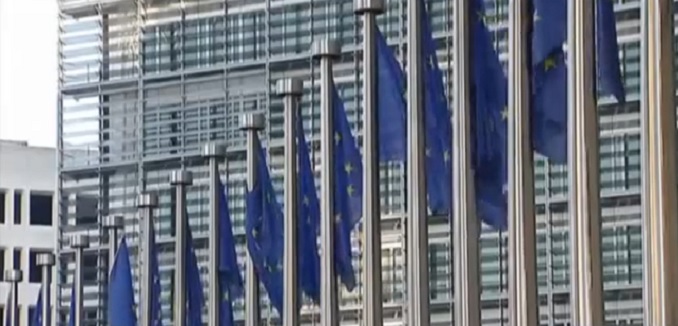European companies are scrambling to rush back into Iran’s newly reopened markets despite Obama administration statements insisting that the Islamic republic “is not open for business,” threatening to undermine confidence in the White House’s management of the diplomatic battlefield as the West and Tehran head into comprehensive nuclear negotiations scheduled for mid-February. Benjamin Weinthal, a research fellow at the Foundation for the Defense of Democracies, last week described the dynamic as one in which Germany’s “European rivals are scrambling to catch up” to the “over 100 German companies… currently doing business in Iran,” with the new capital flooding into Iran worth as much as $20 billion.
Iran’s energy industry, while still under tight sanctions, represents a potential gold mine for European countries. And companies are already exploring how they might enter this sector: Royal Dutch Shell, Italy’s Eni oil and gas company, and the giant Austrian oil and gas company OMV met with Iran’s oil minister in Vienna in December to discuss potential future investments in developing Iran’s oil fields.
That same month, Vienna sent a delegation from the Austrian Federal Economic Chamber (WKÖ), which represents the interests of Austrian businesses, to Iran. The WKÖ meeting appears to be Austria’s first large-scale contact with the Islamic Republic in a number of years. And Vienna seems determined to get its share of Iranian business: According to the Austrian daily Kurier, Richard Schenz, a vice president of WKÖ, announced in January, “There is no reason to adhere to U.S. laws” regarding trade with Iran.
The Financial Times Sunday described “a delegation of more than 100 French companies” that visited Iran on Monday for a three-day visit that the outlet described as “the biggest demonstration of western business interest in Iran for more than a decade.” English-language news distributor Al Bawaba yesterday published an assessment focusing on Iran’s energy markets and headlined “Europe muscling for investments with Tehran.” The potential for a feeding frenzy specifically in the energy sector has been a persistent concern of observers. In mid-January, foreign policy and energy analyst Aaron Menenberg outlined fears that the relief provided by the Joint Plan of Action (JPA) could trigger a downward spiral in which “how [sanctions] are removed is almost irrelevant in the long-run… no company wants to be the first one in, but none want to be the last.” The White House has staked its credibility on predictions that the core sanctions regime against Iran would hold amid the limited relief provided by the JPA, opposite skeptics who predicted the downward spiral that evidence indicates may be occurring. Evidence that the administration had miscalculated the JPA’s effects or misled lawmakers about its likely outcome may heighten already emerging calls for close Congressional scrutiny of a comprehensive deal with Iran.
[Photo: Sa News / YouTube]




